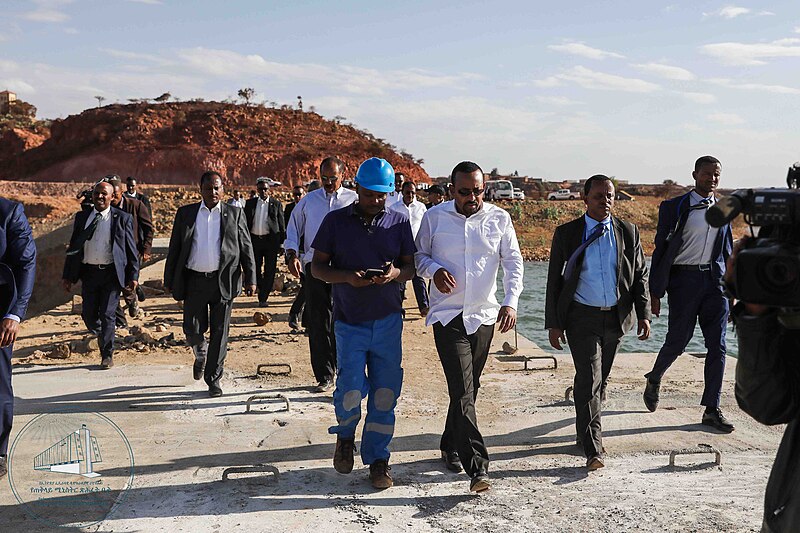The Facts
Ethiopian Prime Minister Abiy Ahmed on Sunday announced that the East African country completed the fourth and final phase of filling a reservoir for its hydroelectric power plant on the Nile River, known as the Grand Ethiopian Renaissance Dam (GERD).
In his statement, Ahmed said the controversial construction faced numerous challenges, including internal difficulties and "external pressure" and expressed confidence in the country’s ability to finish the project to "build tomorrow’s strong Ethiopia on a solid foundation."
The Spin
Narrative A
Ethiopia's continued unilateral filling of the dam violates international agreements on the use of the Nile waters. Until there's a legally binding agreement on the filling and operation of the Renaissance Dam, this project must be stopped. Both Egypt and Sudan have legitimate rights to the Nile waters and these rights are integral to their national security. It's now up to Addis Ababa to show political will and respond positively to Egyptian efforts to reach an agreement.
Narrative B
While Cairo claims that GERD threatens Egypt's water supply, it is in reality primarily concerned about losing its illegitimate control over the Nile. From the day Ethiopia announced its plans to build this massive project, Egypt was openly hostile to the project, with the US on its side to pressure Addis Ababa. Ethiopia is the source of roughly 85% of the Nile's flow and has every right to use this resource to provide affordable energy to its 120M people. As long as Cairo's only concern in negotiations is to maintain its dominance, the talks will yield no fruit.
Narrative C
Unfortunately, talks between Ethiopia, Egypt, and Sudan have not yet brought the hoped-for breakthrough. However, the mere fact that the three countries are seeking a diplomatic rather than a military solution already represents a success in a region plagued by crises. In the case of GERD, all three Nile nations have legitimate concerns. Although managing shared water resources is a complex issue, there are international models for successful negotiations that benefit all parties involved.
